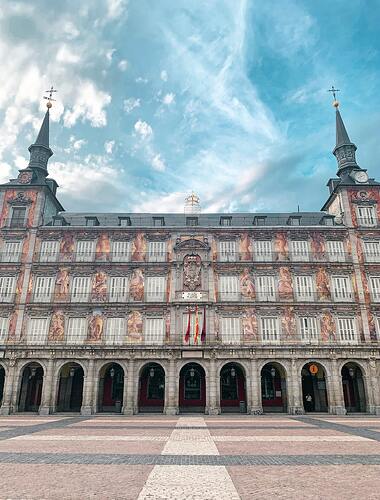Mayor Giuliani, also known as Rudolph William Louis Giuliani, is an American politician, lawyer, businessman, and public speaker who served as the 107th Mayor of New York City from 1994 to 2001. Giuliani, who is a member of the Republican Party, gained national attention for his leadership and response following the September 11 terrorist attacks. Throughout his career, he has been a controversial figure, with some praising his actions and others criticizing his methods.
Early Life and Education
Giuliani was born on May 27, 1944, in Brooklyn, New York City, to Harold Angelo Giuliani and Helen Giuliani (née D’Avanzo). His father was a plumber and a member of the Democratic Party, while his mother worked as a legal secretary. Giuliani attended Bishop Loughlin Memorial High School, where he played baseball and was a member of the school’s debate team.
After finishing high school, Giuliani attended Manhattan College, where he earned a Bachelor of Science degree in political science. He then went to New York University School of Law, where he graduated cum laude in 1968. While in law school, he clerked for Judge Lloyd F. MacMahon of the United States District Court for the Southern District of New York.
Early Career
After law school, Giuliani worked as a law clerk for United States District Judge Lloyd MacMahon for a year, before joining the United States Attorney’s Office for the Southern District of New York as an assistant United States attorney. During this time, he worked on several high-profile cases, including prosecuting members of the Mafia and corrupt public officials.
In 1977, Giuliani left the US Attorney’s Office to join the law firm of Patterson, Belknap, Webb & Tyler, where he became a partner in 1981. He continued to work as a private attorney until he was appointed as the United States Associate Attorney General in 1981, where he oversaw the daily operations of the Justice Department. Two years later, he was appointed as the United States Attorney for the Southern District of New York.
Mayor of New York City (1994-2001)
Giuliani’s campaign for Mayor of New York City in 1993 focused on themes of “law and order” and reducing crime in the city. He was elected Mayor in November 1993, defeating incumbent David Dinkins by a narrow margin.
During his tenure as mayor, Giuliani implemented policies that he believed would improve the quality of life in New York City. His administration focused on reducing crime, cleaning up the streets, and improving government efficiency. He oversaw the implementation of CompStat, a computerized system that tracked crime statistics in real-time, allowing police to quickly respond to and target areas with high levels of crime.
Giuliani also took steps to address the city’s fiscal problems, which included a budget deficit of over $2 billion. He reduced the size of the government workforce, privatized some city services, and implemented a tax cut that helped stimulate the city’s economy.
September 11 Attacks
Giuliani’s leadership and response after the September 11 terrorist attacks brought him national attention and praise. He was widely seen as a symbol of strength, resilience, and unity in the aftermath of the attacks. He made frequent appearances on news programs, provided regular updates to New Yorkers, and personally visited the disaster site to review rescue and recovery efforts.
In the weeks and months following the attacks, Giuliani worked to rebuild New York City’s infrastructure and economy. He established the Lower Manhattan Development Corporation, which was tasked with overseeing the rebuilding of the World Trade Center site, and successfully lobbied Congress for federal aid to help with recovery efforts.
Criticism and Controversy
Despite his successes as mayor, Giuliani has been a controversial figure throughout his career. His policies on crime, public safety, and social issues have been criticized by some as overly aggressive and authoritarian.
Additionally, his personal life has been the subject of scrutiny and controversy. He has been married three times, and his second marriage ended in a highly-publicized divorce. He also faced criticism for his handling of the aftermath of the Amadou Diallo shooting, in which an unarmed African immigrant was shot and killed by police officers.
Giuliani’s role as personal attorney to former President Donald Trump has also brought him criticism and attention. He was a key figure in Trump’s 2019 impeachment trial, and was the public face of Trump’s legal team during the 2020 election.
Legacy
Despite his controversies and criticisms, Giuliani’s ten years as mayor of New York City were marked by significant progress and transformation. He oversaw a significant decline in crime rates, took steps to reduce the city’s budget deficit, and helped to rebuild New York City after 9/11.
Giuliani’s leadership and response in the aftermath of 9/11 cemented his status as a national figure and earned him widespread praise and admiration. While his later years have been marked by controversy and criticism, his legacy as mayor of New York City will endure for years to come.
Disclaimer
6do Encyclopedia represents the inaugural AI-driven knowledge repository, and we cordially invite all community users to collaborate and contribute to the enhancement of its accuracy and completeness.
Should you identify any inaccuracies or discrepancies, we respectfully request that you promptly bring these to our attention. Furthermore, you are encouraged to engage in dialogue with the 6do AI chatbot for clarifications.
Please be advised that when utilizing the resources provided by 6do Encyclopedia, users must exercise due care and diligence with respect to the information contained therein. We expressly disclaim any and all legal liabilities arising from the use of such content.



